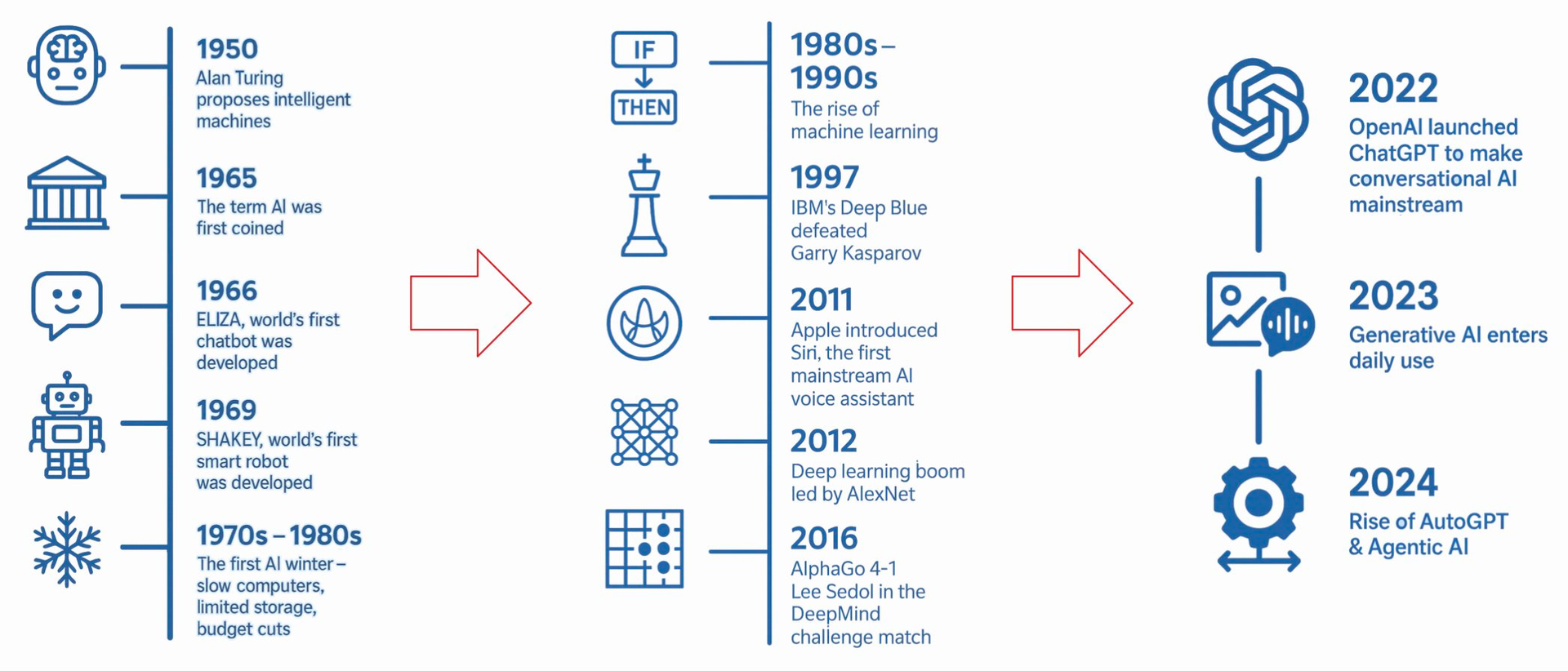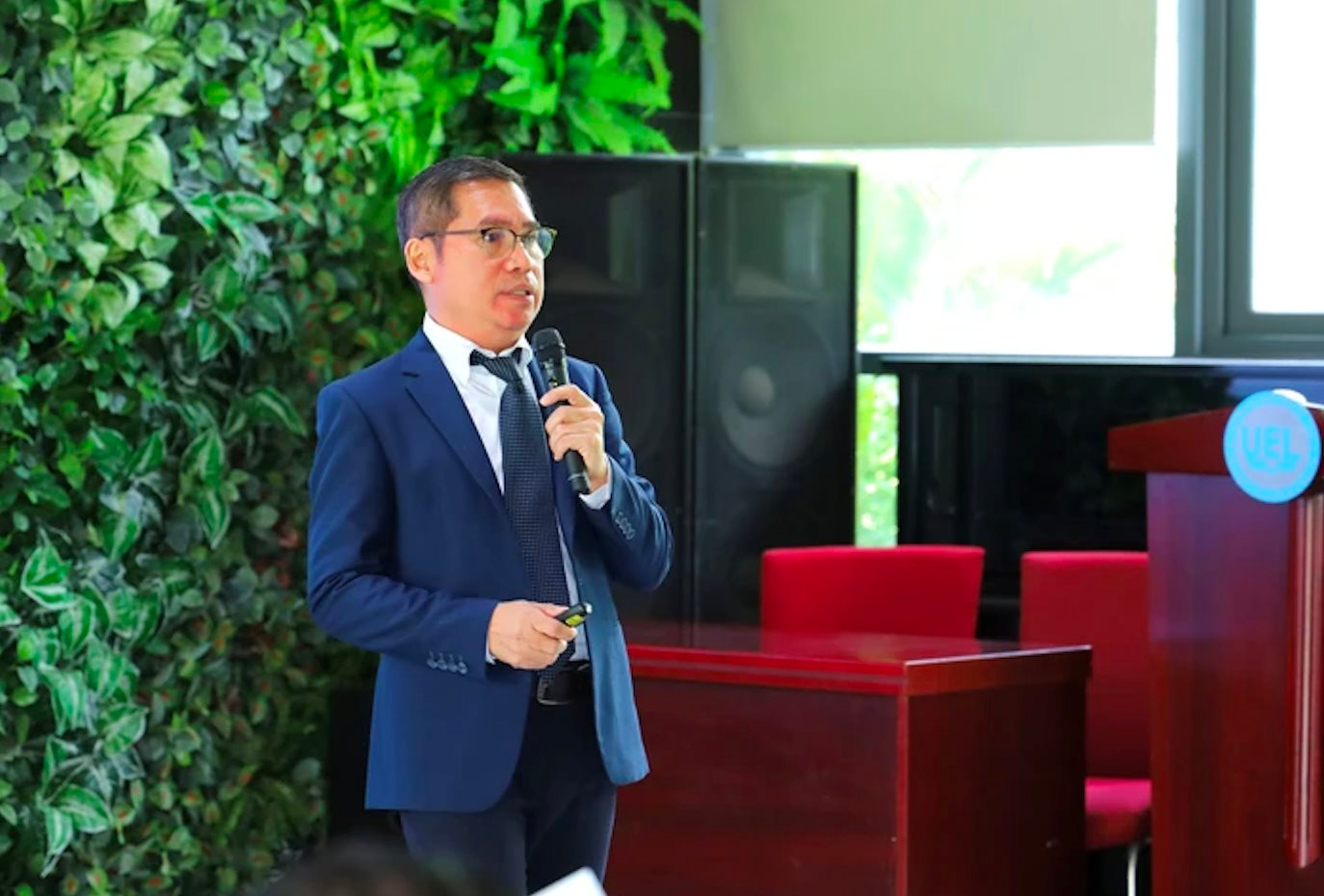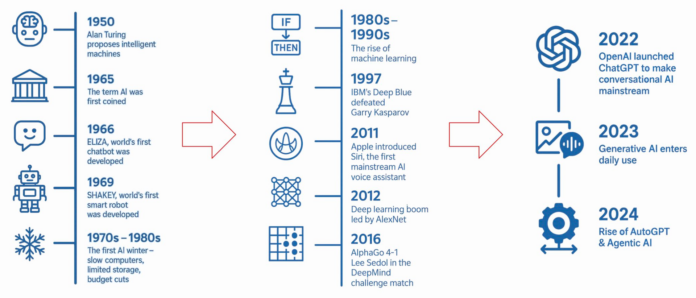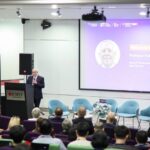Many businesses have been leveraging AI to optimize their operations, particularly in terms of workforce reduction.
A book publishing company aims to replace 30% of its editors with AI.
For instance, Microsoft has recently announced plans to cut about 6,000 jobs globally, approximately 3% of its current workforce. Previously, Walmart also declared a reduction of 1,500 employees in technology, e-commerce, and advertising roles to embrace AI.
According to a Pew Research Center survey released in April, a majority of US adults believe that AI will significantly displace human workers across various sectors within the next two decades. Specifically, 73% of the 5,410 survey participants opined that occupations such as cashiers, factory workers (67%), journalists (59%), and software engineers (48%) are most susceptible to being replaced by AI.
The report “Jobs of the Future in 2025” by the World Economic Forum further underscores this trend, indicating that 41% of businesses intend to reduce their workforce by 2030 due to AI advancements. AI is also projected to supplant 92 million current jobs, including ridesharing drivers, accountants, HR professionals, and bankers.
In Vietnam, a notable example is the announcement by Vanlangbooks, a book publishing company in Ho Chi Minh City, to cut 70% of its translators and 30% of its editors.
Additionally, a survey by the State Bank of Vietnam revealed that over 21% of banks continued to downsize their workforce in the first quarter of 2025. VietinBank, a prominent Vietnamese bank, recently decided to close several transaction offices in major cities like Hanoi, Ho Chi Minh City, Dong Nai, and Quang Ninh, opting instead for digitalization.
Overall, the advent of AI in recent years has posed challenges for employees in various sectors, raising concerns about potential job displacement.
Consequently, there are fears that AI may exacerbate mass layoffs, especially amid economic hardships when businesses are compelled to optimize their expenses.
Will AI Take Away Jobs from Humans?
“The answer is yes. AI will undoubtedly replace or devalue repetitive tasks,” affirmed a representative from Viec Lam Tot, a leading job platform in Vietnam. However, they also emphasized that AI simultaneously creates numerous new opportunities. While AI can handle certain tasks, it also necessitates the emergence of novel roles.

Image: AI Development, JDI & UEL Report, May 2025.
For instance, in customer service, AI can now handle basic inquiries around the clock, swiftly and accurately. This doesn’t signify the disappearance of customer service jobs but rather a shift in focus. The industry now requires specialists in chatbot optimization, AI agent analysis, and customized AI solutions for customer service. Human customer service representatives remain pivotal in handling intricate issues and catering to customers who prefer interacting with a person.
“Purely mechanical jobs will be superseded, but humans retain their edge in domains demanding creativity, strategic thinking, and complex problem-solving skills for unique situations,” they added.
Viec Lam Tot encourages a positive perspective on this transformation, underscoring how technology opens doors to new career paths that necessitate novel skill sets.
Mr. Hoang Nam Tien, Vice President of FPT University, echoed similar sentiments at a recent seminar, asserting that the crux of the matter isn’t whether AI can supplant humans but rather our ability to harness this technology as a lever for cognitive enhancement.
He emphatically stated, “AI won’t replace humans, but those who harness AI will replace those who don’t.”
Educating the AI Agent Workforce: Beyond Understanding AI to Ethical Practice
For businesses, alongside the challenge of integrating AI into their operations, there lies a more significant conundrum: how to equip their workforce with the skills necessary to harness AI effectively and ethically.
In Vietnam, several companies, including Besco JSC, Veron Group Technology JSC, G.C Food, Tuan Loc Commodities Co., Ltd., and Jumstart Disruptive Innovation, are proactively fostering a workforce conversant with AI Agent technology through collaborations with tech companies and partnerships with universities and colleges.
A pressing concern in this regard is the misuse of AI by younger generations. Mr. Hoang Nam Tien expressed alarm at the propensity of students to rely on AI for their assignments. “This is perilous for future generations. Instead of mastering AI, our children risk becoming enslaved by it,” he cautioned.

Image: Dr. Le Hoanh Su emphasizes the need for the future workforce to not only understand AI but also develop it ethically.
From an educational standpoint, Dr. Le Hoanh Su, Head of the Information Systems Department at UEL, underscored the imperative for universities and businesses to collaborate in cultivating a new generation of workers, dubbed “Workforce 2.0,” who are adept at both understanding and ethically developing AI.
Dr. Su highlighted that the future workforce must not only comprehend AI but also actively monitor and cultivate it with a moral compass and efficacy.
Technology companies are also investing in AI Labs to nurture local tech talent, encompassing research and practical implementation within data centers.
A representative from the AI division of Veron Group Technology JSC emphasized the criticality of investing in the development of indigenous AI talent if Vietnam aspires to reduce its reliance on foreign technology.
They further revealed that Vietnam’s data center market is projected to reach a scale of $700-800 million by 2024 and is expected to triple by 2030. Hanoi, Ho Chi Minh City, and Danang are the leading regions in terms of data center quantity and expansion rate, propelled primarily by cloud computing and international investments.
The Ultimate 6.6 Mega Sale: Lazada Empowers Vietnamese Sellers with AI Innovation
To drive growth for sellers during the Mega 6.6 Sale, Lazada is leveraging its AI ecosystem to provide strategic support and enhance operational efficiency. With a focus on timely insights, the e-commerce platform offers a suite of solutions to optimize visibility and conversions during this peak season.
What Additional Skills Do Managers Need to Steer Their Businesses?
In a dynamic global economic landscape, characterized by ever-evolving technological trends and shifting tariff barriers, a transformative mindset is essential for business leaders. To thrive in this challenging era, a strategic and adaptive approach is imperative. The question then becomes: what path should leaders take to navigate these complex waters and drive success?





















